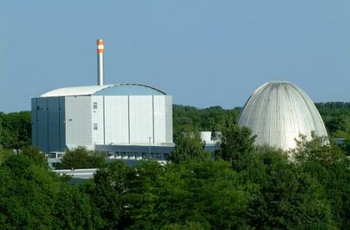
 The Jülich Centre for Neutron Science (JCNS) develops and operates neutron scattering instruments at some of the world's leading neutron sources (FRM II, ILL, SNS) under a common scientific objective, and it coordinates Germany's contribution to the forthcoming European spallation source ESS. In-house research focuses on ―correlated electron systems and nanomagnetism‖ as well as ―soft matter and biophysics‖. In these areas of expertise, the JCNS offers expert support on world-class instruments with a specialized sample environment and ancillary laboratory access to external users. The JCNS outstation at the world‘s highest flux research reactor at ILL in Grenoble, JCNS operates the Collaborative Research Group instruments, IN12, IN22 and D23, in a consortium with the French CEA. This gives German user groups access to world-class instruments for structural and dynamical studies. At the first Megawatt Spallation Neutron Source SNS in Oak Ridge, USA, JCNS operates a next generation spin echo spectrometer with unprecedented resolution and dynamical range. Through this contribution to the instrumentation, German users have access to the instrument suite of this unique source.
The Jülich Centre for Neutron Science (JCNS) develops and operates neutron scattering instruments at some of the world's leading neutron sources (FRM II, ILL, SNS) under a common scientific objective, and it coordinates Germany's contribution to the forthcoming European spallation source ESS. In-house research focuses on ―correlated electron systems and nanomagnetism‖ as well as ―soft matter and biophysics‖. In these areas of expertise, the JCNS offers expert support on world-class instruments with a specialized sample environment and ancillary laboratory access to external users. The JCNS outstation at the world‘s highest flux research reactor at ILL in Grenoble, JCNS operates the Collaborative Research Group instruments, IN12, IN22 and D23, in a consortium with the French CEA. This gives German user groups access to world-class instruments for structural and dynamical studies. At the first Megawatt Spallation Neutron Source SNS in Oak Ridge, USA, JCNS operates a next generation spin echo spectrometer with unprecedented resolution and dynamical range. Through this contribution to the instrumentation, German users have access to the instrument suite of this unique source.
 By far the largest outstation of JCNS in Garching near Munich where Technische Universität München (TUM) operates a modern neutron source, the 20 MW high-flux reactor FRM II. With its compact core, its optimized cold source, and its innovative neutron-guide concept, FRM II offers particularly good conditions for cold-neutron instrumentation. JCNS operates currently nine scattering instruments; two more are under construction. Under a cooperation agreement between the Helmholtz association of national research institutes (including Jülich, Berlin, and Geesthacht) and Technische Universität München, JCNS contributes substantially to the scientific infrastructure at FRM II. In particular, JCNS runs a joint project group for Scientific Computing. This group supports instrument scientists and their users in all questions related to data analysis. It develops and maintains dedicated data-analysis software for neutron scattering. It coordinates the standardisation of data formats. Preferentially, open-source software is used, and the group contributes back to open-source projects. In future, it will also perform physical simulations (molecular dynamics, density functional theory) to complement scattering experiments. The Scientific Computing group represents JCNS and FRM II in the national and international data management initiatives PNI-HDRI (High Data Rate Processing and Analysis Initiative of the Helmholtz association), NeXus, and PaNdata.
By far the largest outstation of JCNS in Garching near Munich where Technische Universität München (TUM) operates a modern neutron source, the 20 MW high-flux reactor FRM II. With its compact core, its optimized cold source, and its innovative neutron-guide concept, FRM II offers particularly good conditions for cold-neutron instrumentation. JCNS operates currently nine scattering instruments; two more are under construction. Under a cooperation agreement between the Helmholtz association of national research institutes (including Jülich, Berlin, and Geesthacht) and Technische Universität München, JCNS contributes substantially to the scientific infrastructure at FRM II. In particular, JCNS runs a joint project group for Scientific Computing. This group supports instrument scientists and their users in all questions related to data analysis. It develops and maintains dedicated data-analysis software for neutron scattering. It coordinates the standardisation of data formats. Preferentially, open-source software is used, and the group contributes back to open-source projects. In future, it will also perform physical simulations (molecular dynamics, density functional theory) to complement scattering experiments. The Scientific Computing group represents JCNS and FRM II in the national and international data management initiatives PNI-HDRI (High Data Rate Processing and Analysis Initiative of the Helmholtz association), NeXus, and PaNdata.
